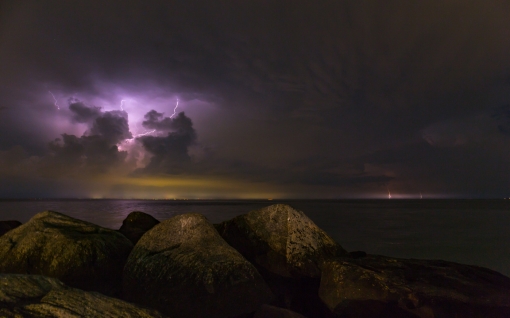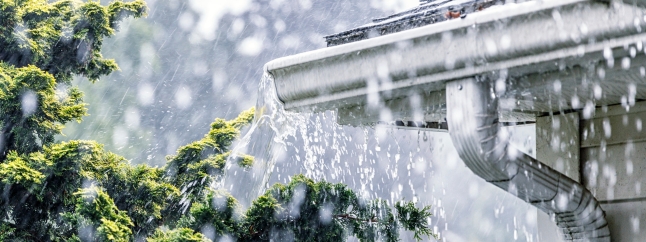When the storm clouds gather, it’s not just about boarding up windows and stocking up on supplies. Your plumbing needs attention too. Here’s how you can safeguard it:
Understanding the Basics of Your Plumbing System
- Know Your Main Water Valve: Familiarize yourself with the location of the main water valve. In case of emergencies, turning it off can prevent potential flooding.
- Locate Your Sewer Lines: Being aware of where your sewer lines run can help you identify potential blockage points.
Regular Maintenance Checks
- Hire a Professional: We’re here when you need a Mr Fix It! Regularly get your plumbing system checked by professionals, like us. We can spot issues that might exacerbate during storms.
- Clean Your Drains: Ensure that all drains, including stormwater drains, are free from blockages.
Install a Sump Pump
- Why It’s Essential: A sump pump can help remove excess water from your basement or lower floors, preventing flooding.
- Regular Maintenance: Ensure it’s in working condition, especially during the rainy season.
Secure Outdoor Plumbing
- Tie Down Loose Fixtures: Items like hoses or sprinklers can become projectiles during strong winds.
- Protect Faucets: Cover outdoor faucets to prevent debris from clogging them.
Elevate Electrical Appliances
- Safety First: Elevate water heaters and other electrical plumbing fixtures to prevent water damage and potential electrical hazards.
Backflow Prevention
- Install Backflow Valves: These valves prevent sewer water from flowing back into your home during heavy rains.
Insulate Pipes
- Prevent Bursting: Insulating pipes can prevent them from bursting due to the pressure of accumulated stormwater.
Clear Gutters and Downspouts
- Prevent Blockages: Regularly clean gutters and downspouts to ensure rainwater flows away from your home.
Emergency Plumbing Kit
- Essential Tools: Keep a kit with essential plumbing tools and materials. This can be a lifesaver during emergencies.
Stay Informed
- Weather Updates: Keep an eye on weather forecasts. If a hurricane or heavy rains are predicted, take necessary precautions in advance.
Frequently Asked Questions (FAQs)
- How often should I get my plumbing checked?
- Regular maintenance checks, ideally once a year, can help spot potential issues that might worsen during storms.
- Can insulating pipes help during hurricanes?
- Absolutely! Insulating pipes can prevent them from bursting due to the pressure of accumulated stormwater.
- What is the role of a sump pump during flooding?
- A sump pump can help remove excess water from your basement or lower floors, preventing potential flooding.
- Why is backflow prevention essential?
- Backflow valves prevent sewer water from flowing back into your home during heavy rains, ensuring sanitation and hygiene.
- How can I protect my outdoor plumbing fixtures during a storm?
- Tie down loose fixtures like hoses and cover outdoor faucets to prevent debris from clogging them.
- Is it necessary to elevate electrical plumbing appliances?
- Yes, elevating appliances like water heaters can prevent water damage and potential electrical hazards.
Conclusion
Preparing your plumbing for a hurricane or flooding rains in Long Beach, California, might seem like a daunting task, but with the right steps, it’s a breeze. Remember, the key is to be proactive rather than reactive. Regular maintenance, coupled with specific measures during storm warnings, can ensure that your plumbing remains intact and your home stays safe and dry. So, the next time those dark clouds loom over the horizon, you’ll know your plumbing is ready to face the storm.
External Source: National Weather Service’s Safety Tips



